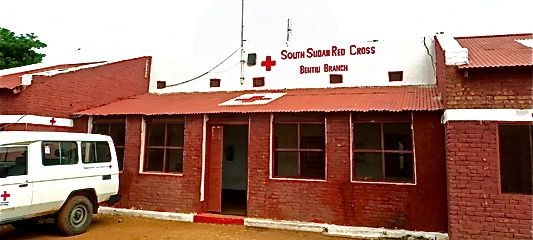The South Sudanese Red Cross disclosed that it collected 34 bodies in Bentiu and another 82 in its twin city Rubkona. The same bodies were apparently later buried in the ‘mass graves’ that the UN announced on Monday it had found.
UN High Commissioner for Human Rights Navi Pillay said there was one mass grave in Bentiu and two other mass graves in Juba. Another UN official clarified that there were actually two burial sites witnessed in Bentiu. The UN says the mass graves of mainly Dinka soldiers were found in Bentiu, the capital of oil-rich Unity State, which since 21 December is partly under control of a defected Nuer general opposed to President Salva Kiir.
According to various reliable local sources, the graves the UN claims to have discovered in Bentiu were part of a collective burial authorized by the military authorities who took control over the town. A witness of the burial told Radio Tamazuj that the local authorities did not follow the Red Cross procedures to make a picture from the bodies before burying them.
The UN in Geneva put the initial number of discovered bodies at 75 but later revised this number downward to 34, clarifying that 75 were feared missing and presumed dead.
Asked for explanation, the spokesman of the UN High Commissioner for Human Rights told Radio Tamazuj: “The UN official that visited the location saw 14 bodies and apparently there were another 20 bodies at the riverside. In total there were 75 SPLA soldiers who are unaccounted for. We had unconfirmed information that some of the bodies may have been burned.”
It is unclear who of UN was allowed by the military authorities to attend the burial or to reopen the graves. According to the UN in Geneva, the grave found in Unity State’s capital Bentiu contained “dozens of bodies, reportedly of slain Dinka soldiers.”
People who closely witnessed the burial in Rubkona said there were no UN staff seen there at that time, though it is possible local staff not wearing any identification or uniform could have been present. The UN did not contact the South Sudanese Red Cross for any further information.
Spokesman of South Sudan Red Cross Maryal Mayom said to Radio Tamazuj that his staff were not involved in the burial. Maryal Mayom explains: “We can confirm – as everybody witnessed – that we collected dead bodies of civilians and soldiers from the streets. The relatives were not taking the bodies for burial. Our staff brought them to the mortuary of Bentiu Hospital.”
“Since we were not involved in the burial, we did not take pictures of the bodies. Had we been involved, our volunteers would have had to take pictures and fill in a four-page form. That will make it easier for the relatives to identify someone. But in these cases we handed the bodies over to the staff of the mortuary in the hospital. It is the responsibility of the authorities to handle the bodies if no one from the family comes to claim them,” he added.
Maryal Mayom said it is unknown to him what happened to the bodies and whether the mortuary was large enough to handle so many bodies in one day.
According to a local reporter and eyewitness, the bodies collected by the Red Cross were buried in Rubkona Cemetery. “All the relatives of these Dinkas have fled the town or are hiding in the UNMISS compound, so they will not come to bury their relatives.”
The journalist who lives in Bentiu told Radio Tamazuj: “We have not counted the bodies exactly, but there was a good number we have seen. The Red Cross started to collect the bodies. They were still lying in the street. Others were collected from inside the army barracks. They also have been brought to the cemetery located in Rubkona. This is not very strange in such a war situation.”
Pillay also expressed serious concern about the safety of those who have been arrested and are being held in unknown locations in Juba, including several hundred civilians who were reportedly arrested during house-to-house searches and from various hotels in Juba. Hundreds of members of the South Sudan National Police Service were also reportedly ordered to be disarmed and arrested from police stations across Juba.




